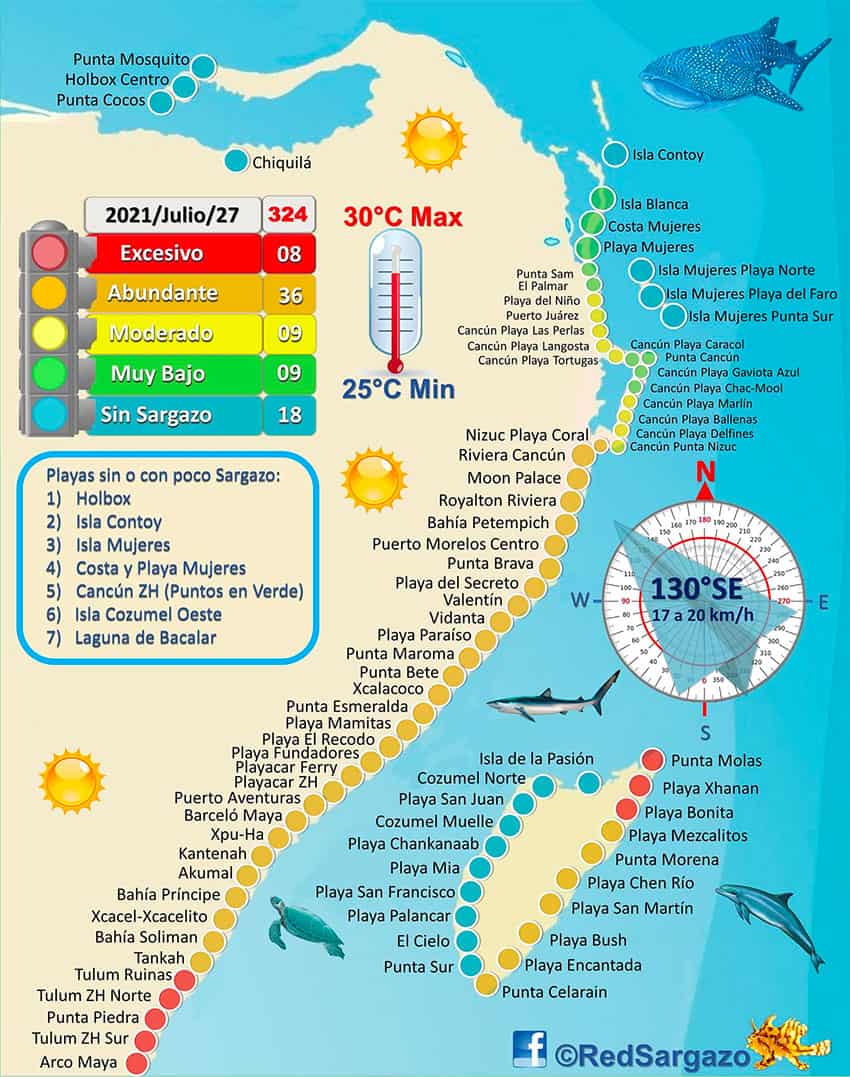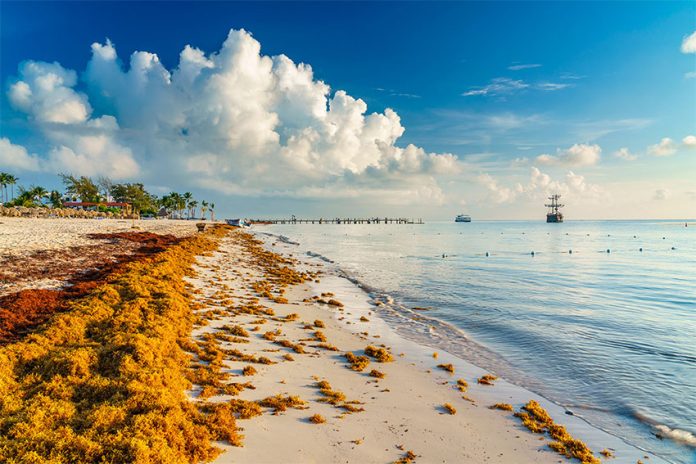Beachfront hotels in Quintana Roo are spending US $70,000 to $90,000 each per month on containing sargassum and removing the seaweed from the beach, according to the head of an industry group.
Antonio Chávez, president of the Riviera Maya Hotel Association, said the outlay is as high as it is because hotels have installed their own sargassum barriers in the sea and have to maintain them on a daily basis.
The use of machinery to clear the smelly, unsightly seaweed from beaches and the hiring of workers to manually remove it adds to hotels’ costs.
During the sargassum season, which is expected to last eight months this year, hotels in destinations such as Cancún and Playa del Carmen will spend more than $500,000 each on contention and removal efforts, Chávez said.
He said the navy’s removal of sargassum from the ocean is welcome but pointed out that the quantities it extracts are dwarfed by the amounts that reach Quintana Roo’s famous white sand beaches.

While the navy has reported removing about 500 tonnes of sargassum from offshore, hotels have cleared more than 5,000 tonnes from beaches, Chávez said. That’s proof that the navy isn’t deploying enough sargassum-gathering vessels, he said.
Chávez also said that navy vessels have nowhere to dock in northern Quintana Roo to offload sargassum they have collected. Instead they get as close to the coast as they can and release the sargassum back into the water where small boats recollect it and take it to shore for disposal. The exercise slows the whole sargassum-gathering process down, Chávez said, adding that taxes municipalities collect from foreign tourists should go to the construction of a wharf where navy vessels can dock.
The most recent map published by the Quintana Roo Sargassum Monitoring Network shows that there are abundant quantities of the seaweed on most of the state’s north coast with excessive amounts on beaches in the Tulum area.
However, the navy said this week that sargassum arrivals are expected to decline in August and September due to changing ocean currents. The first reductions should be seen within the next two weeks, said Lieutenant Reynaldo Varga of the navy’s Gulf and Caribbean Oceanography Institute.
With reports from El Economista and Periódico Viaje
